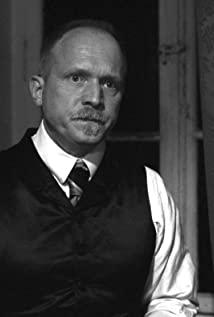"Don't do anything, don't know anything... Do we arrest people on a whim? If you think the system condones this kind of thing, just think about it, and we can arrest you." That's what Captain Wislaer told him when the man arrested by his neighbour and friend who fled to West Germany was on trial. The shudder this sentence gave me was very consistent with the suffocating horror I felt in Nineteen Eighty-Four: "Thought sin does not bring death; thought sin itself is death." The story of "The Wiretap" is also set. In 1984, this was certainly no coincidence. "1984", because of George Orwell, can be directly replaced by "Totalitarian", "Big Brother", "Thought Police", "Double Mind", "Newspeak", and "Under the shaded chestnut tree, you I betrayed me, I betrayed you" ... "Eavesdropping Storm" uses another story to deduce the same core. The man was interrogated for 40 hours. When he appeared in the class of the secret police school as a case, a student asked, "Why don't you let him sleep? It's inhumane." This human nature, this kindness, let alone being a secret policeman, is not qualified to be a subject. Sure enough, Wisrel, who was teaching, asked his name and marked it on the roster. What awaits him? And then the policeman who joked about the leader in the restaurant. In the end, of course, Wisrel himself.
Like an eagle's eye, like a dog's smell, Wislaer can see at a glance that he loves the party, loves socialism, enjoys a high reputation, has deep high-level connections, and is as pure as a "blank piece of paper". People who need to be monitored. But the action was carried out quickly, thanks to the behind-the-scenes driving force of Minister Hamp. The fat-brained Minister greatly admired Dleiman's evaluation of "perhaps he is not as innocent as he appears" after observing the color of the cultural director Gubiz (also a lieutenant of the National Security Agency). It was he who fell in love with Dryman's girlfriend, the charming actor Christa. According to his power, occupying a woman is easy, but a love rival is always an eyesore.
"If you really catch his pigtails, I will have a friend in the center." The naked deal is based on sacrificing other people's lives and even their lives. In the 30 years before the fall of the Berlin Wall, an average of 8 people were arrested every day for "undermining national security", and 6 million people, more than one-third of the total population of East Germany, had been established secret files. I don't know how many people like Gubiz and Hamp's desire for power have been satisfied, in the name of "faith", "loyalty", "ism", and the voyeuristic desire of the conscientious secret police. Didn't the secret policeman who was on duty with Wieslaar say that as soon as he heard Dleiman and Christa were having sex, he said happily that he just liked to spy on artists. The game of "power" has no restrictions, it is comparable to the devil, and it is very indiscriminate. Excluding power, the big fat Hamp who gasps for words is disgusting. But once the "power" bug burrowed into his fat body, he possessed a terrifying magic power. Krista was humiliated and submissive, and in the car, the driver watched from the rearview mirror.
This is not the reason why Dleiman, who understands that "the party needs artists, but artists rely more on the party", has transformed into an activist. His friend, Jaska, the director he respects, has been "blacklisted" for seven years for "careless words and deeds" and can no longer direct new dramas. "What is a director without a director? Like a projectionist without film, a mill owner without grain, like a waste." When the news of Yaska's suicide came, Dleiman played the birthday Yaska gave him Gift: "Sonata for a Good Man". This piece, based on Beethoven's "Passion Sonata", also made Wieslaer shed tears while listening. The lacrimal glands open, and humanity returns. Wisrel had mixed feelings of admiration, admiration, pity, etc. for Krista, and he successfully persuaded her to give up the Hamp minister's appointment. Wislaer and Dryman began their own metamorphoses: the former consciously aided the latter in secret; the latter ventured to write an article for the West German magazine Der Spiegel that exposed East Germany's long-hidden suicide data.
If Wieslaar is moved by the struggles, struggles and yearning for freedom of Dleiman, it is better to say that he is moved by the human elements in their life and work-friendship, love, sex, music, literature... Infected and moved, he finally betrayed the system at the cost of sacrificing his political life and career, so that Dreiman safely entered the unified Germany. Dleiman did not know that he had been closely watched, much less that he had been risked to protect him, and that his protectors were severely punished: five years of letters in a dark cellar - every letter from the East Germans will be disassembled for inspection.
Two years after the fall of the Berlin Wall, the postman Wisler came across Dleimann's new book, Sonata for a Good Man. He picked it up, opened it, and the title page was printed: "This novel is dedicated to HGW XX/7, with my deepest gratitude..." After the suffocating horror, the director gave the audience a warm cushion. However, the director of the Stasi Museum said that in the decades of history of the Stasi, secret police like "Weissler" discovered with a conscience, "I'm sorry, there is none." He also rejected "Eavesdropping Storm" for this reason. A request from the crew to film at the Stasi headquarters.
As the "Sword and Shield of the Party", the "Stasi" targets not just the political activities of "dangerous" figures, but every space and every person in the GDR. "WIR SIND UBERAL (we are everywhere)" is the Stasi's stated goal. The scope of the secret police's surveillance was all-encompassing, as evidenced by the recordings Wissler and his partner made of Dryman. Once monitored, everything is in the Stasi's grasp. 112 kilometers (about 1,000 pages per kilometer) of written materials, 15,500 bags of fragmented materials, dozens of kilometers, millions of films, pictures, slides, video materials, etc. were born. And this is only left over after the Stasi desperately destroyed the secret archives before the fall of the East German regime, causing all the shredders to be paralyzed.
Before the Stasi was dissolved in 1989, there were 91,000 people, or about one in every 160 people in East Germany. "Drymann" is one of the applicants who have applied more than 6 million times since the Stasi Museum accepted the application of ordinary German citizens in January 1992. Seeing the hill-like secret file that was pushed out, Dryman was quite shocked. More horror will grow exponentially as he reads, and the one that hurts his soul the most must be the statement that Christa became an informant. The team of Stasi informants (informers) is extremely large, the confirmed data is 174,000, and there are even reports that it is nearly 500,000. Spouse, parents, children, lovers, relatives, friends, neighbors... all possible. The shock, disappointment, mourning and disillusionment it brought to the former East Germans after reunification still pervades to this day. Like Dryman, he found an agent with a mysterious code name in his secret file, and went to great lengths to help him silently. This huge warmth and moving is dedicated to the audience by writer and director Donas Mark.
(Please do not reprint)
View more about The Lives of Others reviews











